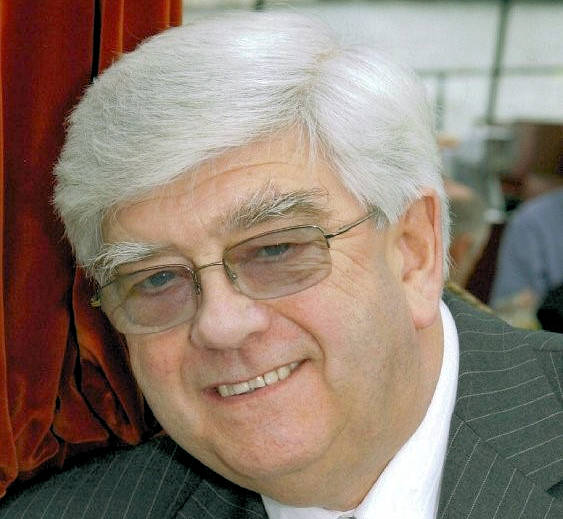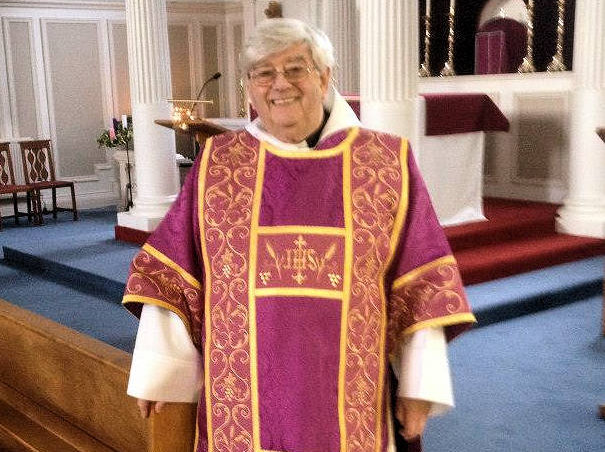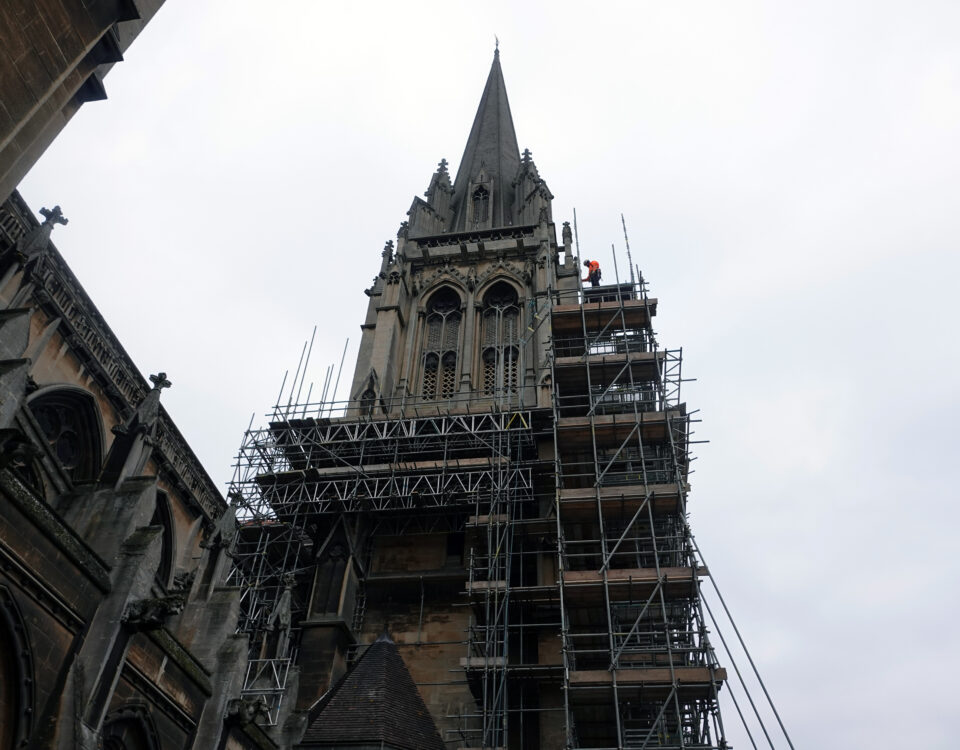
Cardinal welcomes resumption of collective worship
June 24, 2020
The “fear factor” in reopening of churches and schools
June 24, 2020Deacon Peter Coates, from Woodbridge, has died, aged 80, after a long illness. Fr Edmund Eggleston pays tribute.
Peter Coates was born during the Second World War in Darlington and was never seen by his father who died on active service in Egypt. In infancy, Peter was given up for dead on at least two occasions but revived. These episodes were almost certainly due to the congenital condition known as Ehlers Danlos Syndrome (EDS) which continued to cause problems for Peter throughout his life.
Peter had a primary school report which said “Good sometimes” and a grammar school report which said “There is no false modesty in this boy”. After grammar school, he worked as a mental nurse, as a care assistant in a hostel for destitute people, and for Dr Barnardo’s Homes before training for ministry in the Methodist Church.
He claimed that his Bachelor of Divinity degree from the University of London made him the only Methodist Minister with a degree in the Roman Catholic Mass. His Master of Theology degree was in New Testament Theology and he was found asleep on the floor outside the Examination Room before his final written exam.
At the age of eight, Peter told his mother that he had a vocation to be ordained and to work amongst the poorest people. Most of his ministry in the Methodist Church was based in inner London and his last appointment was as Chaplain to Rochester Borstal and Secretary of the London South East Synod as well as Chaplain to the European Youth Council and Leader of the first British delegation to the East German Methodist Church.
 After leaving the Methodist Church, Peter worked in Prison Education before becoming Deputy Director of Replan, a government programme working with Further Education Colleges and unemployed people. This led to work on projects sponsored by the European Union. He also gained an academic diploma in Adult Continuing Education, a Master of Education degree and a Fellowship in the Chartered Institute of Personnel and Development.
After leaving the Methodist Church, Peter worked in Prison Education before becoming Deputy Director of Replan, a government programme working with Further Education Colleges and unemployed people. This led to work on projects sponsored by the European Union. He also gained an academic diploma in Adult Continuing Education, a Master of Education degree and a Fellowship in the Chartered Institute of Personnel and Development.
During this time, by separate routes, both Peter and his wife Kathleen, came to believe that it was right to ask to be received into the Roman Catholic Church.
In 1995, Peter went to Azerbaijan as Team Leader on a project to reform the Ministry of Labour. This project lasted for a year and Peter has been credited with helping to found the Catholic Church there. The first public Mass since the communist revolution of 1918 was celebrated in his flat by Fr Colin Taylor from the Nottingham Diocese. After Peter’s visit to the Nuncio in Tiblisi, Georgia, two priests were sent to Baku to establish the parish and build the new Church.
The following year Peter went to Moldova, to be joined there by Kathleen and their son Alister a few months later. Moldova had the lowest GDP in Europe and, through voluntary work with the Church and with Caritas Moldova while living in a village sharing people’s lives, that early vocation began to be fulfilled. He was later ordained to the Order of Deacons on January 6, 2001 by the Rt Rev Anton Cosa, Bishop of Chişinău.
Peter continued to work on projects mainly in Moldova but also in Kyrgystan, but eventually the EDS caught up with him again and gave rise to a few misdiagnoses in both countries and the UK. The family had to return to England and Peter was very ill during the early part of 2003. After recovering, he became an assistant to the Catholic Chaplain at Feltham Young Offenders Institute until Bishop Anton arranged an American contract enabling Peter to commute to Moldova eight times per year. This was not too difficult as the family were then living in Twickenham close to London Heathrow Airport, but of course in August 2005 the family came to live in Woodbridge. The charity Moldova not Forgotten was set up to continue the work there. He was the first permanent deacon in Eastern Europe.
With permission from Bishop Michael Evans, and later Bishop Alan Hopes, Peter ministered in the parish of Saint Thomas of Canterbury at Woodbridge from 2005 and he wrote a regular column for our diocesan website and newspaper – Catholic East Anglia. Peter continued to be incardinated to the Diocese of Chişinău, Moldova.
Peter died in Ipswich hospital on June 23, aged 80. He is survived by his wife Kathleen, three children, and grandchildren.
May he rest in peace.
Click here to read more columns from Peter




